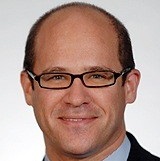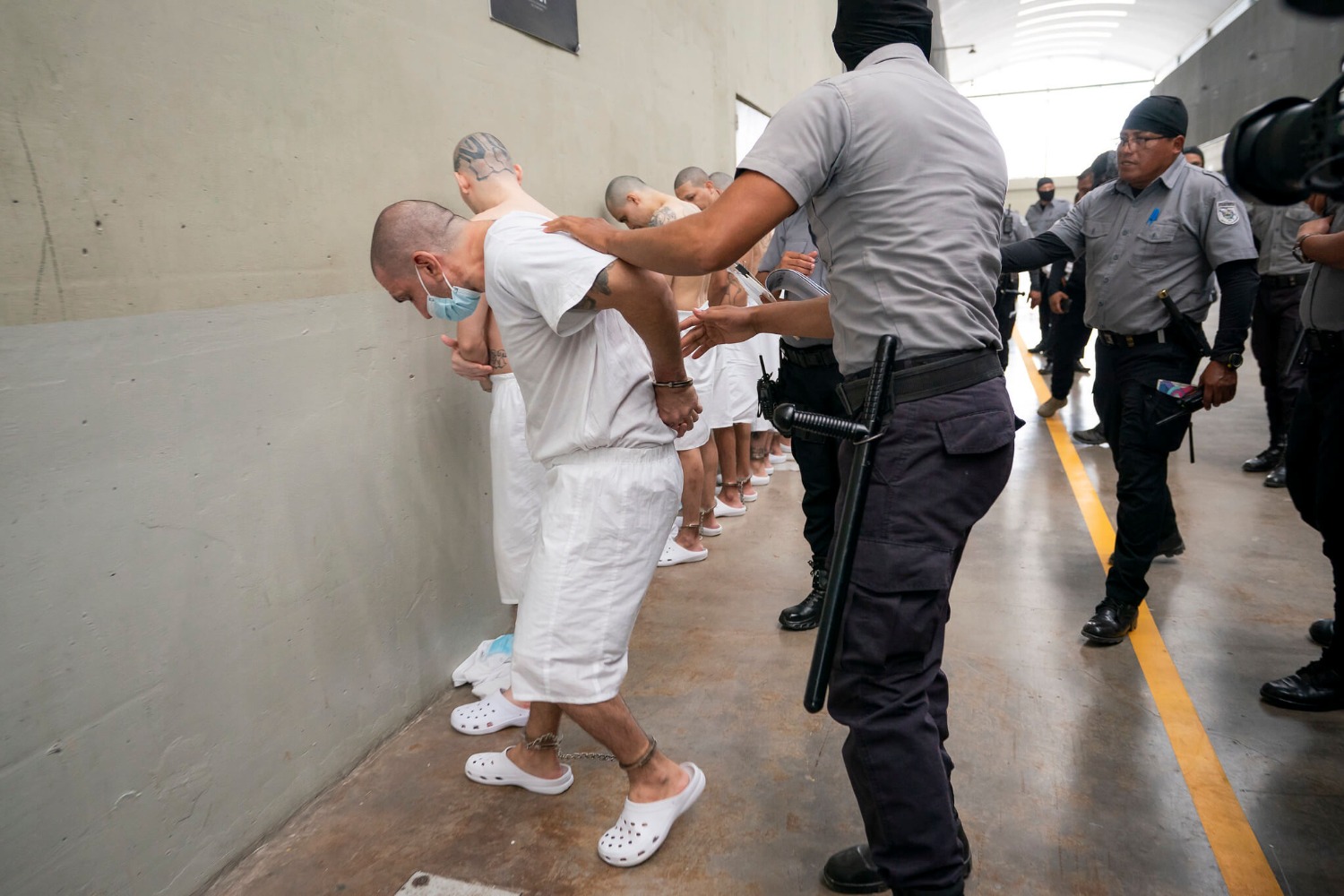Andrew McCarthy's Puzzling Argument, Round 2
A few weeks ago, I wrote a post titled “Andrew McCarthy's Puzzling Argument” that explained the weakness in Andrew McCarthy’s then-recent argument in the National Review that the Mueller investigation had “shredded” and “flouted” Justice Departmentt charging policies.
Published by The Lawfare Institute
in Cooperation With

A few weeks ago, I wrote a post titled “Andrew McCarthy's Puzzling Argument” that explained the weakness in Andrew McCarthy’s then-recent argument in the National Review that the Mueller investigation had “shredded” and “flouted” Justice Departmentt charging policies. Andrew has generously responded by devoting his weekly National Review column to defendng his post against my criticism. His response is here: “Mueller Owes It to Prosecutors Nationwide, and to His Own Cases, to Uphold Justice Department Standards.”
I thank Andrew for the honor of replying to my post, as well as for his kind words about my work generally. But I wanted to detail why I am deeply unconvinced by his reply.
Here's a quick overview of the dispute. Richard Gates, a former top campaign aide to President Trump, recently pled guilty and is now cooperating with Mueller's investigation. McCarthy's objection is that Gates was permitted to make a lenient plea deal. In McCarthy's telling, Justice Departmentt charging policy has a clear rule: Prosecutors are "require[d]" (in McCarthy's words) to take a plea only to the most serious readily provable charge consistent with the nature and extent of his conduct. Because Gates only pled guilty to part of what he was accused of having done, McCarthy argues that permitting Gates to take the plea was a "bizarre" event and a "remarkable sleight-of-hand" in which Mueller "shredd[ed]" and "flouted" Justice Department charging policies.
In my first response, I pointed out that McCarthy simply overlooks an exception to the rule when "timely cooperation appears to be necessary to the public interest" to obtain a person's cooperation. From my post:
In the ordinary case—the only kind of case McCarthy focuses on—a defendant must “plead to a charge that is consistent with the nature and extent of his/her criminal conduct." But that ordinary approach is “not inflexible,” and the need to get cooperation from a defendant may “take precedence” over the rule. In particular, prosecutors can “bargain[] for cooperation as part of a plea agreement,” and the need for cooperation can “take precedence” over the usual requirement when “timely cooperation appears to be necessary to the public interest.”
In plain English, if a sweet plea deal is needed to get an important witness to flip and cooperate quickly, a sweet plea deal can be reached. Prosecutors should do so cautiously for a range of reasons. But accepting the plea to only a small part of the charge in exchange for cooperation, as happened in the Gates case, isn't “bizarre.” It doesn't “shred” policy. And it doesn’t “flout” the rules. The practice is expressly provided for in the rules. It’s just in a paragraph that McCarthy for some reason ignores.
In short, Andrew is saying, Mueller broke the bright-line rule policy; and I'm saying, but the policy has an explicit exception for circumstances just like this one, and you're oddly ignoring it.
McCarthy's response to my criticism is quite long, and it unfortunately leads with several arguments that do not actually engage with what I wrote. McCarthy calls this part of his post "underbrush [that] needs clearing," but I think it's more accurate to call it responses to arguments I never made. For example, McCarthy claims that I wrongly asserted he said the policy was legally binding (no, I didn't). McCarthy also says that I argue that the non-prosecution exception applies (no, I didn't, as we're talking about a plea).
Near the end of his post, though, McCarthy does respond dirctly to my criticism. Here's where it gets interesting. McCarthy argues that the exception I pointed out does not apply on the facts of the Gates case. Read the whole thing if you're interested, but this seems to be the key passage:
The situation to which Kerr refers usually arises when the prosecutor cannot yet prove a suspect has committed crimes but time is of the essence — perhaps, to take a common example, the most culpable suspects in the investigation are about to flee. . . .
This was not the case with Gates. To the contrary, by Mueller’s own account, Gates had committed known, serious, readily provable offenses. Applying the manual passage that Kerr himself quotes, it cannot be said that unless Mueller declined to prosecute (or at least dropped the serious charges), “other means of obtaining the desired cooperation [were] unavailable.” Mueller could have demanded an appropriate plea and pressured Gates to earn sentencing leniency by cooperating (which is standard operating procedure); or he could have convicted him at trial and pressured him to cooperate in exchange for a reduced sentence (the usual alternative to the standard procedure).
In addition, while Gates’s cooperation in the prosecution of Manafort (and in the Russia investigation generally) is doubtless welcome, it is presumably unnecessary. The fact that Mueller indicted Gates and Manafort necessarily means the special counsel has a good-faith belief that his evidence is strong enough to persuade a rational jury to convict both of them. And in this instance, the narrative style of the indictment conveys the prosecutor’s assessment that the proof of guilt is quite strong. So, not only is time not of the essence here. Gates is not of the essence.
There are two major problems with McCarthy's defense, I think. First, McCarthy's argument is based on what he feels the usual application of the rule is, rather than what the rule actually is. McCarthy has in mind a typical case in a routine prosecution. McCarthy is troubled that the use of the exception in this investigation appears to be different from a typical case. But I wonder, why does that matter? McCarthy accused Mueller of shredding and flouting the policy, not of correctly applying an exception to the policy in a way that is different from Andrew McCarthy's personal expectations. Whether Mueller complied with the exception depends on the exception's text, not one's feelings towards different ways of satisfying it.
Second, McCarthy's speculation about alternatives to the Gates deal seems remarkably disconnected to what we know of the investigation. Mueller is not a random AUSA investigating two white collar crime suspects in isolation, with all the time in the world. That seems to be McCarthy's mental model of the case. I gather that's why he only thinks of the policy's reference to the need for "timely cooperation" in the context of a routuine criminal case, such as having a defendant who might flee. McCarthy imagines a simple and routine case like any Assistant U.S. Attorney would have, so he can't imagine any need for "timely cooperation" for one defendant (Gates) to plead guilty and testify against the other (Manafort). Just wait a year or so for the case to go to trial and then seek cooperation, McCarthy is saying. It's not like there's any rush.
But remember what this investigation is about. Mueller is a special counsel specifically tasked with investigating, among other things, "any links and/or coordination between the Russian government and individuals associated with the campaign of President Donald J. Trump." Gates is not some random guy: He's the former deputy manager for that campaign. And Manafort isn't a random person, either. Manafort is the former manager of the Trump campaign who has deep and long-known contacts with pro-Putin interests—contacts about which Gates, as Manafort's right-hand man, is presumably very familiar. And according to press reports, Mueller's team told Gates that they didn't need his cooperation for evidence against Manafort. Rather, they wanted Gates's cooperation "to hear what [Gates] knew about contact between the Trump campaign and Russians."
In other words, according to what Mueller's team told Gates, Mueller gave Gates a sweet deal to get evidence against the core mission of the Special Counsel's investigation: Learning about possible collusion between Putin's government and the Trump campaign.
With that context in mind, ask yourself if there is a "public interest" in the "timely cooperation" of Gates. McCarthy's thinks the answer is no because he only sees a routine prosecution with two individual defendants in isolation. But it seems obvious to me that there is a very significant public interest in finding out sooner rather than later whether there were "any links and/or coordination between the Russian government and individuals associated with the campaign of President Donald J. Trump." And it's not hard to see how Gates, as the former Trump campaign deputy manager and Manafort's right-hand man, can shed light on that.
Consider the possibilities. If there were no links or coordination, then there is a great public interest in making that clear to all soon so the cloud of suspicion can be lifted. The President's team has been cooperating with Mueller to try to get the investigation to wrap up as quickly as possible to clear Trump. The President of the United States should not be forced to wait to be fully cleared while Mueller takes his sweet time with the Gates prosecution. And if such links or coordinartion existed, there is great public interest in knowing that soon, too. Given Mueller's charge from Rosenstein, and Gates's position at the center of it, I think the case for getting Gates' cooperation now instead of waiting for a year or so is not hard to see.
In sum, McCarthy's claim that Mueller "shredded" and "flouted" DOJ policy depends on him first ignoring the applicable exception to the rule and then, when it was pointed out, ignoring the fairly obvious reason why it would apply. As I said above, I am very appreciative that McCarthy responded in detail to my initial post. But I am not at all persuaded by McCarthy's argument.




